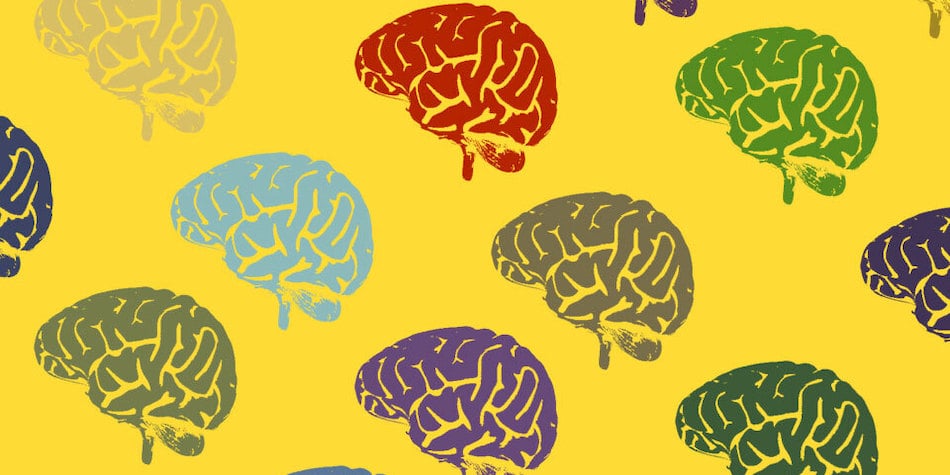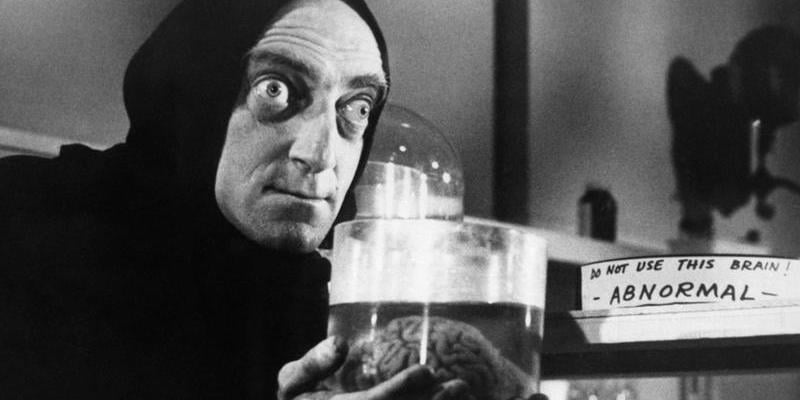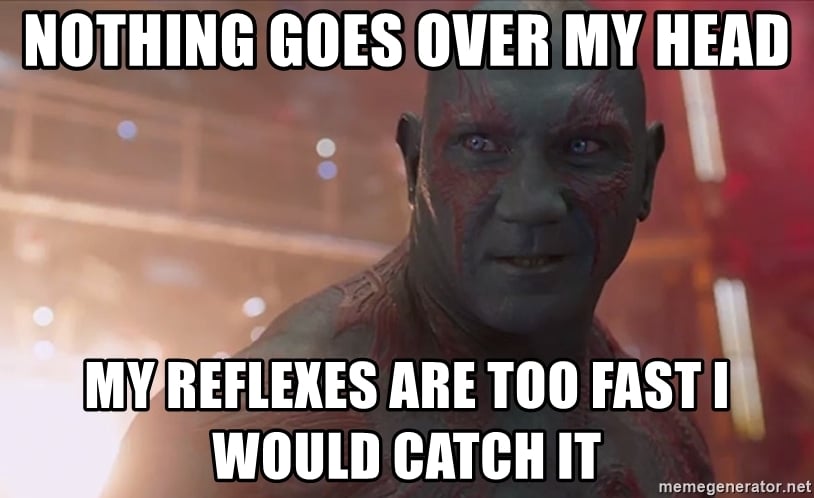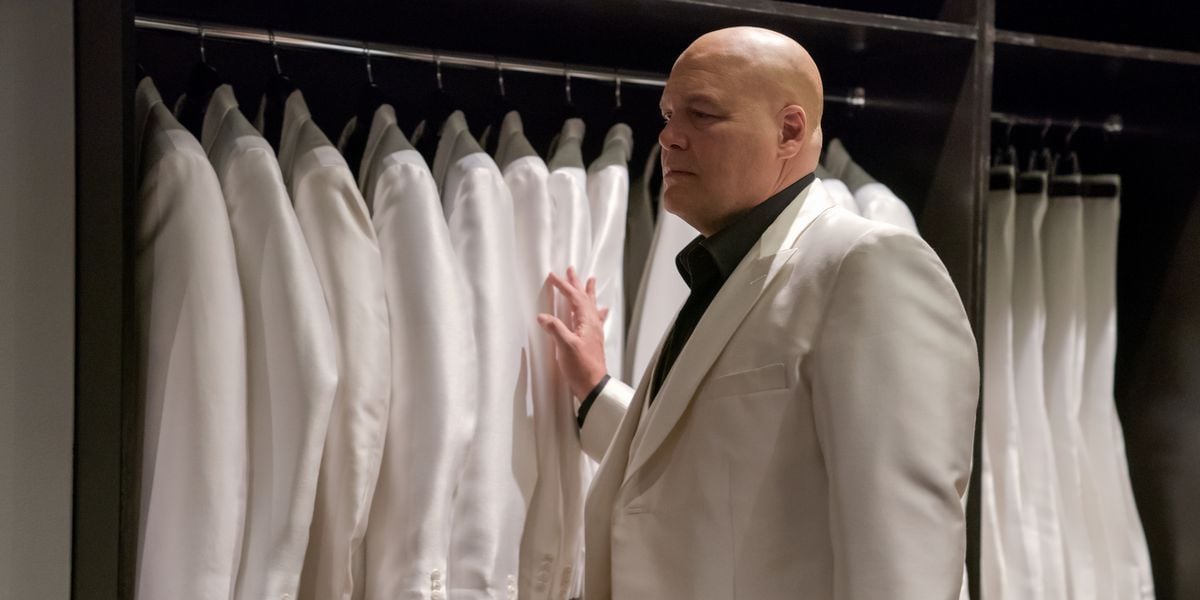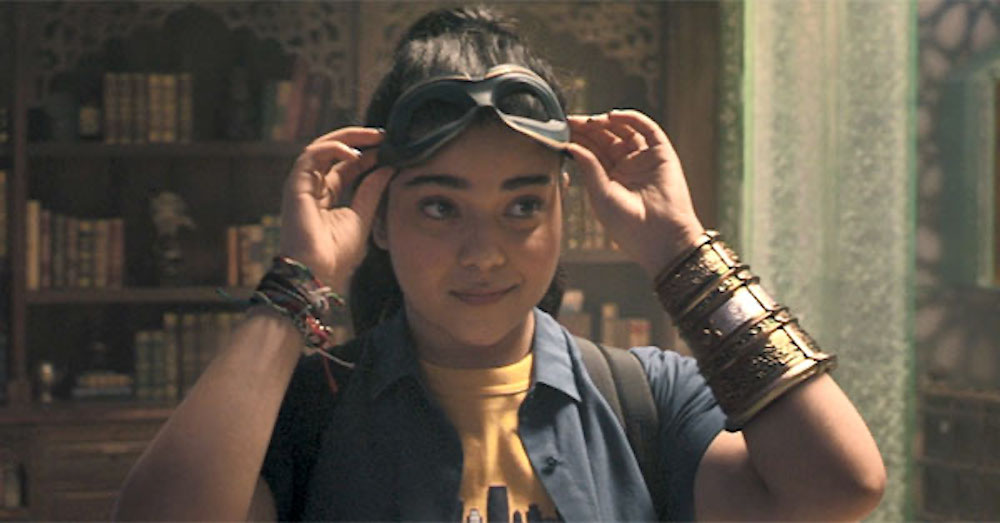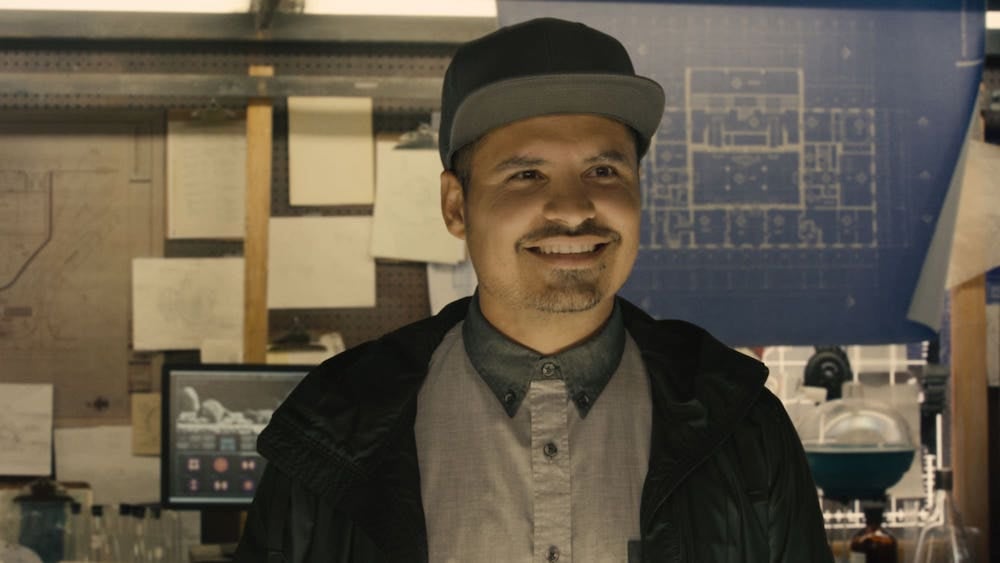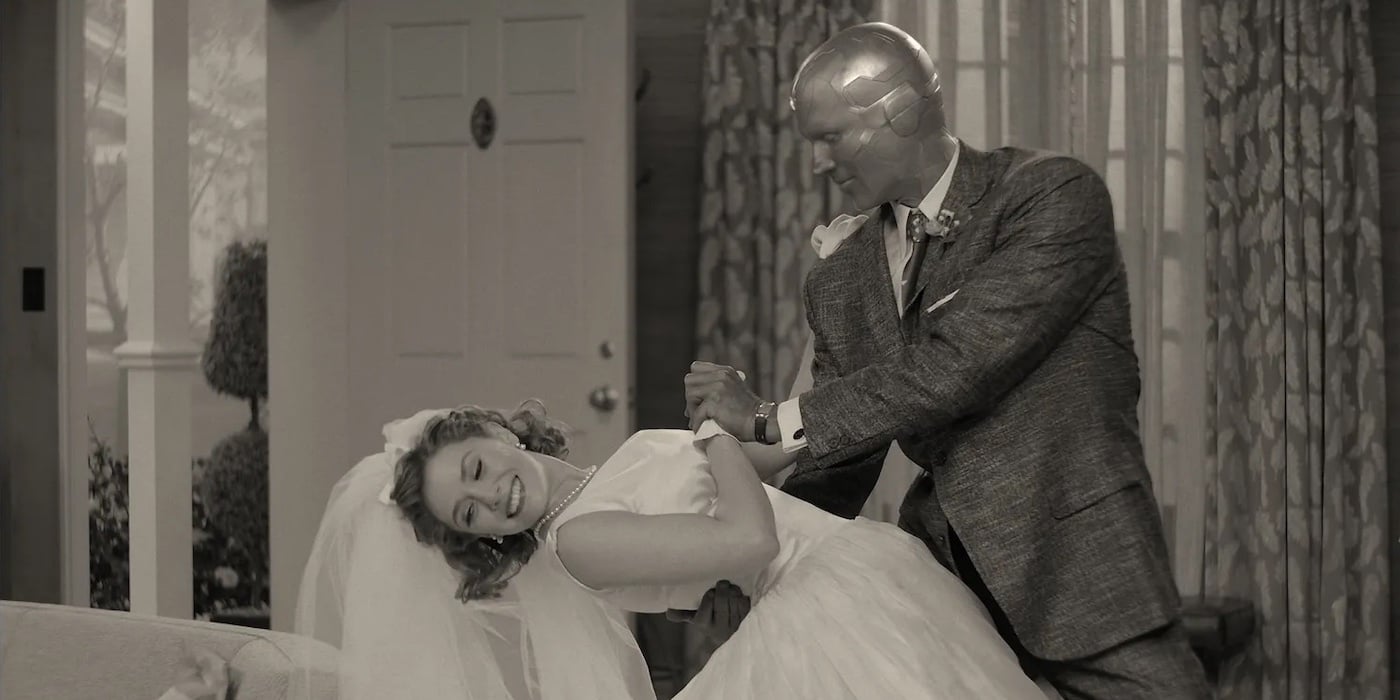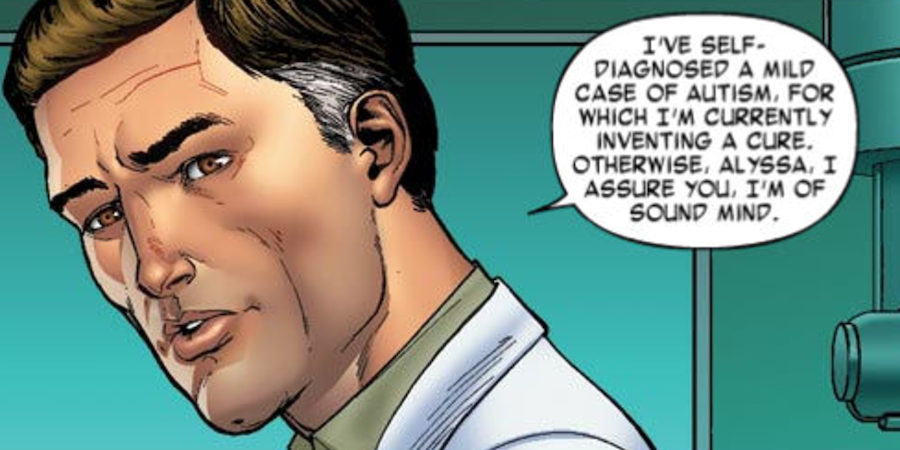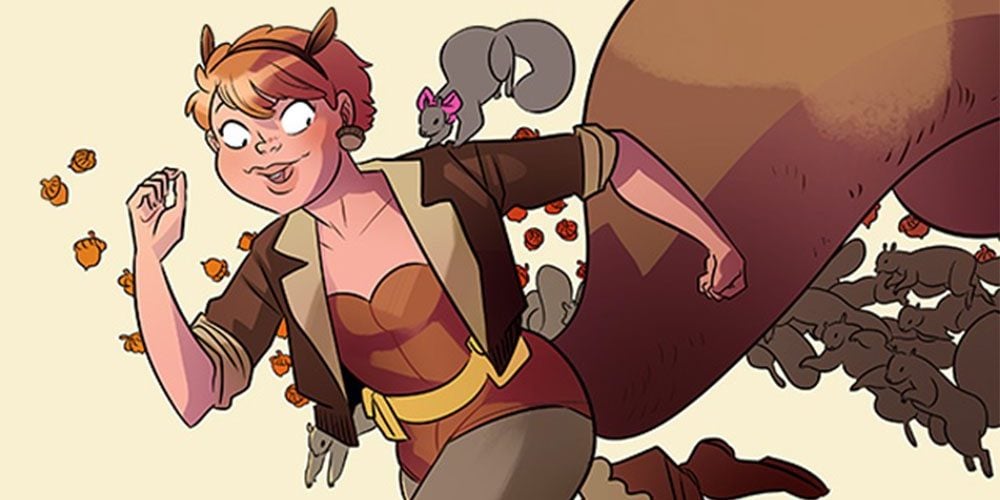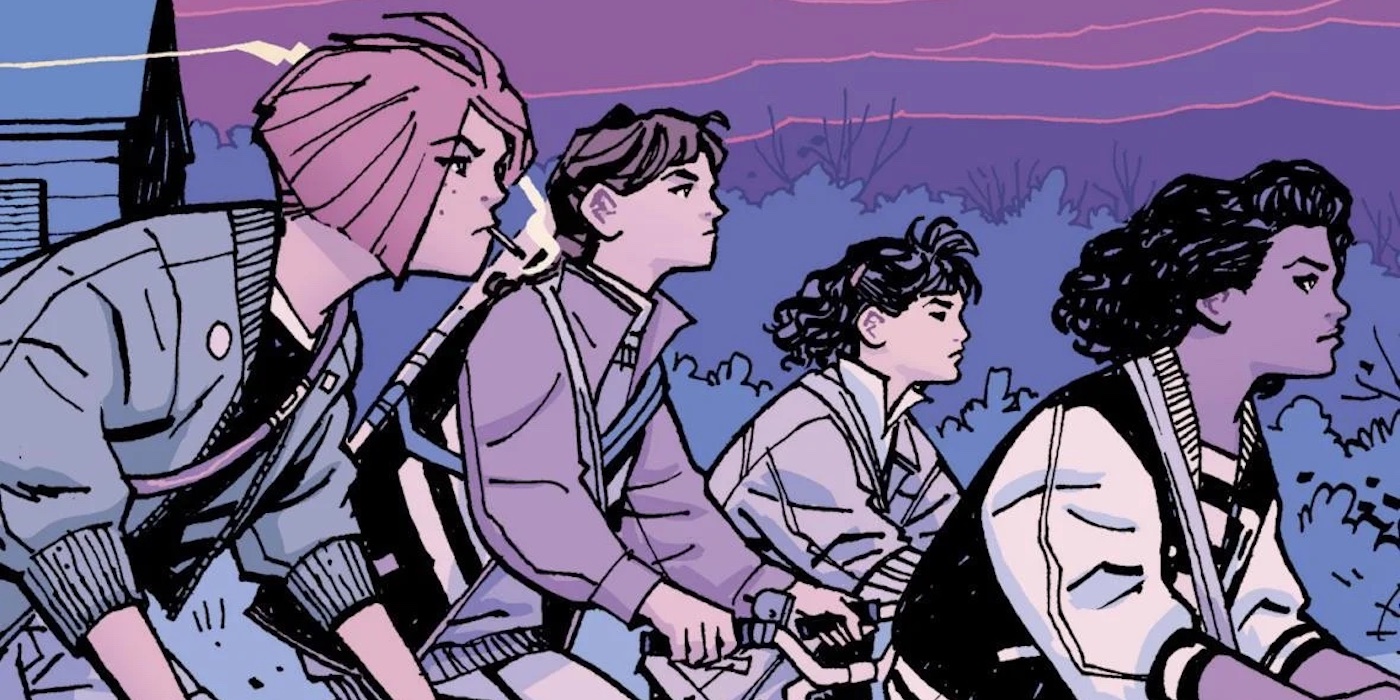Autism, ADHD, and Neurodiversity in the Marvel Cinematic Universe
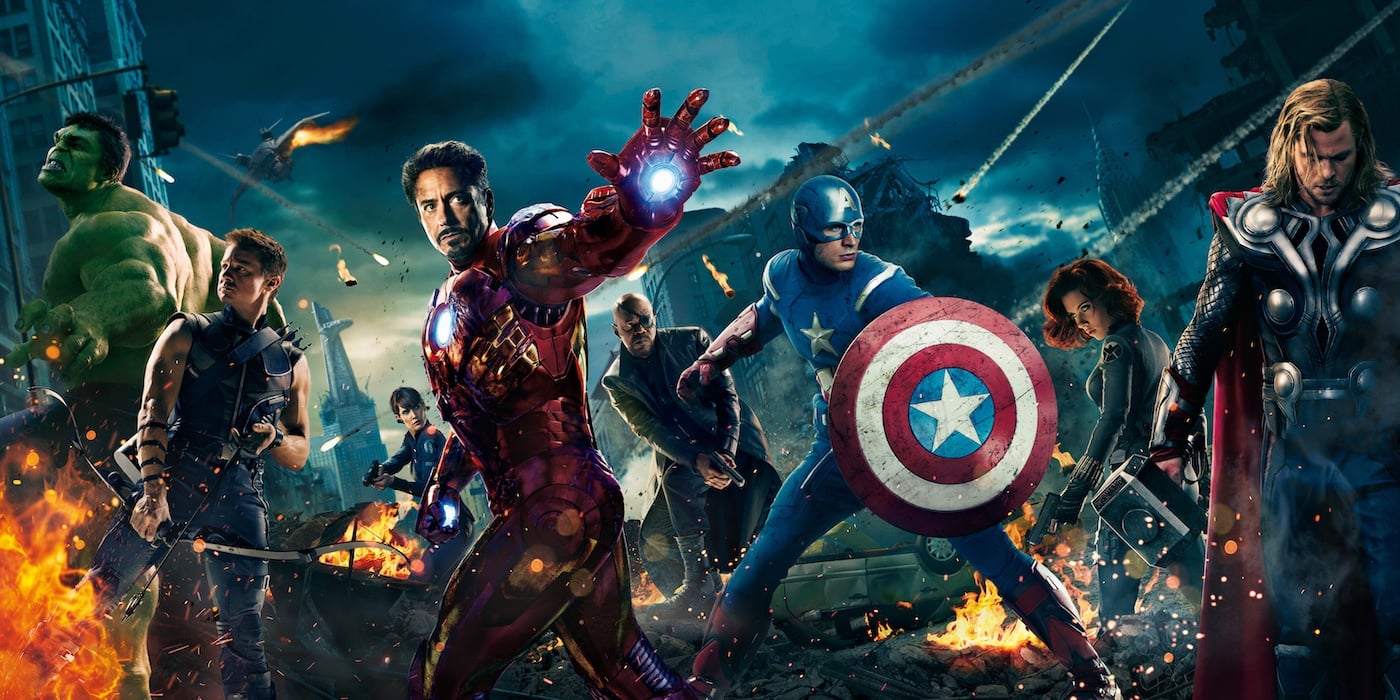

The Marvel universe is massive, and its heroes display a whole range of skills and genius qualities.
The higher-ups at Marvel may not officially acknowledge it, but there are some whose behaviors suggest their brains are marching to the beat of a different drum.
What does it mean to be neurodivergent?
The term ‘neurodivergent’ is used to describe a person whose brain just functions differently than what would be considered typical. It’s most commonly associated with a number of thinking patterns considered to be disordered, like autism spectrum disorder (ASD), attention-deficit/hyperactivity disorder (ADHD), dyslexia, Tourette’s syndrome, and other conditions that affect a person’s cognitive functions.
It’s hard to know what percentage of the population is neurodivergent; many adults with ASD or ADHD go undiagnosed. But it’s estimated that 30-40% of people are neuroatypical. And as more people seek diagnosis, more information spreads about these types of brain behaviors.
The Stories We Tell About Neuroatypical People
Everyone knows that empathetic, authentic representation in media can help shed light on the experiences and perspectives of marginalized people. There are still a lot of misconceptions about conditions like autism and ADHD, and those social biases can have real effects on their education, jobs, personal relationships, and more. Normalizing the way these people’s minds work on screen can have a powerful impact.
The Myriad of Minds of the Marvel Universe
The MCU contains over 700 characters, and it’s adding more every day. Of those characters, none are officially on the record as having any kind of neurodivergence. But it’s a long-standing tradition for people who don’t see themselves specifically represented in media to find characters they relate to, and so qualities like neurodivergence, gender identity, and sexual orientation become a part of every major fandom’s head-cannon.
Before we kick off the speculating, my attorney informs me that I should state for the record that I am not a psychiatrist; I am not qualified to diagnose any of these fictional people. I’m just a neuro-rebel who likes geek things and believes that all brains are good brains.
1. Drax the Destroyer
When Guardians of the Galaxy premiered in 2014, parents of children with ASD reported their children connecting with the character Drax. The character’s staunch literalism and direct method of speaking made viewers on the spectrum feel seen. While Drax may struggle to understand the nuances of emotion in his teammates, he has his own ways of expressing affection for them.
Similarly, fans have also hypothesized that Mantis is on the spectrum, and the two together illustrate just how different expressions of autism can be.
2. Tony Stark

Tony Stark is a poster child for ADHD. Frequently distracted by ideas, staying awake and hyper focusing for long stretches of time – hell, his decision to tell everyone he was Iron Man was done on 100% impulse. Robert Downey Jr.’s portrayal lends itself to this fan theory, like the way Tony thinks rapidly out loud (a productivity method that helps ADHD people process thoughts).
3. Kingpin
I’m not usually in favor of tagging villains as representatives of any marginalized group, but the depth of Vincent D’Onofrio’s Wilson Fisk went so far beyond heroes and villains. Fisk’s specific routines, his aversion to social settings, his precise way of speaking, and other nuances appealed to some viewers on the spectrum. Sometimes, people with ASD have difficulty navigating social situations and can become overwhelmed in large crowds. Wilson is an intimate portrayal of a reclusive man who can methodically run the world, but who feels out of place among its people.
4. Ms. Marvel Kamala Khan
It’s commonly understood by Ms. Marvel comic book fans that Kamala Khan has ADHD. And just like the source material, the MCU’s newest series introduces a Kamala with a rich imaginary life and inability to pay attention. The way her sketches come to life and help express her thoughts and emotions is very relatable.
I won’t spoil anything this soon, but Kamala’s power very well may be an extension of her creativity and spontaneity – traits that are commonly associated with ADHD.
5. Luis from Ant-Man
If you don’t have ADHD, but you’d like to take a quick roller-coaster ride through the mind of someone who does, look no further than Ant-Man. Luis’ storytelling is certainly meme-worthy. But it’s also deeply relatable to anyone with ADHD who tells stories by painting the entire picture, backstories included, and maybe some sensory details that really stood out to us.
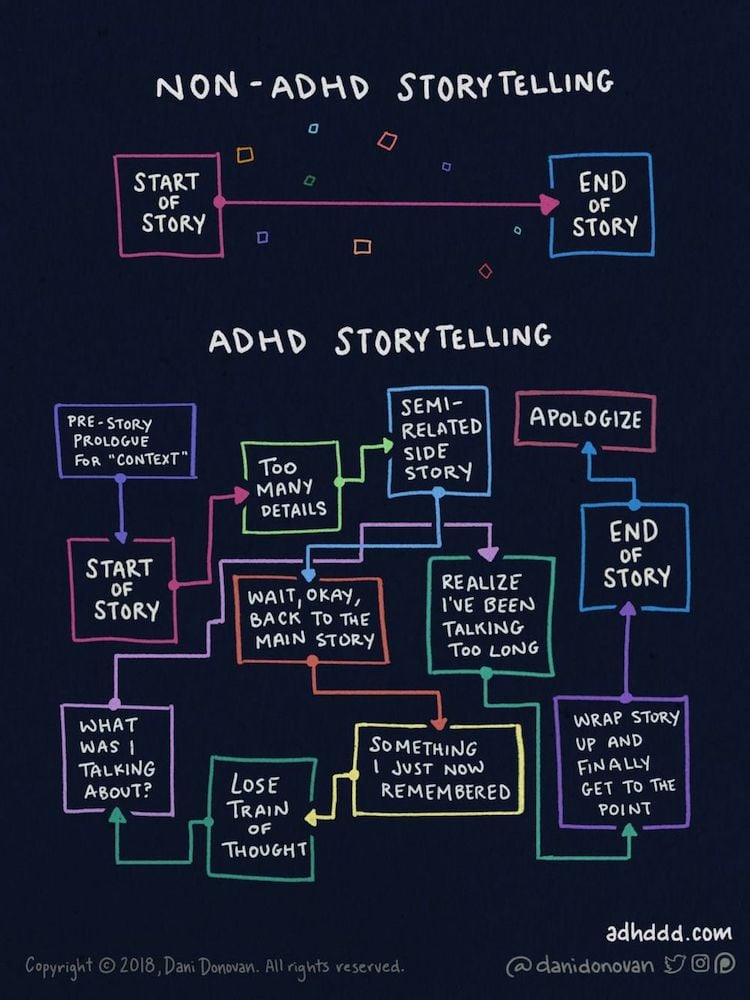
Courtesy of Dani Donovan
5. The WandaVision Allegory
Neither of the title characters are specifically portrayed as being on the ASD spectrum. But some fans found the couple’s situation very relatable. Wanda has unknowingly created this environment around her, and Vision is a synthazoid! Together, the two try to appear normal in a mid-century setting. They’re constantly looking to those around them to try and suss out what kind of social behaviors are appropriate. This behavior is something that some people with ASD and ADHD do in order to function in social settings.
More Upcoming Character Opportunities
In the Marvel comics, Reed Richards from the Fantastic 4 diagnoses himself with autism and is considered an autism-coded character. For me, this particular panel could use some updating. I’d love to meet a Reed who wouldn’t see his Autism as something in need of “curing”. But either way, a Fantastic 4 movie would be a great opportunity to explore the character’s neurodivergence.
Similarly, if mutants ever come to the MCU, Jubilee from the X-Men is known to have dyscalculia. This affects her ability to grasp numerical concepts. The mutant Wiz Kid is also dyslexic.
Many MCU actors have also spoken about their personal neurodivergence, including Mark Ruffalo and Tom Holland. It makes sense that there would be plenty of ND performers interested in suiting up. Kayla Cromer of Everything’s Gonna be Okay has expressed interest in joining the MCU, and it doesn’t look like anyone had cast Squirrel Girl yet. Hmm…
One thing’s for sure, as Marvel expands its universe, there are even more opportunities to tell neurodivergent stories.

